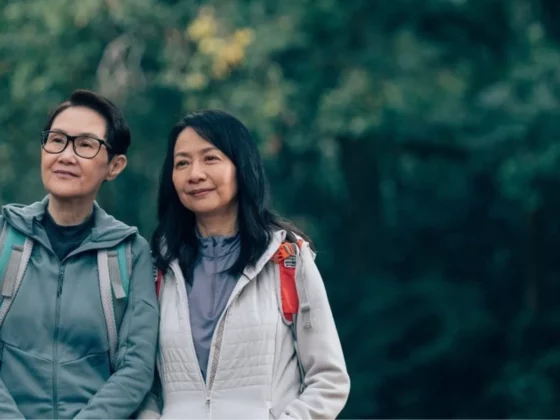The recent release of intimate footage of two Hong Kong celebrities on the website of a local newspaper has become the talk of the town. The suspected clandestine clip appears to be taken by a camera installed in the taxi which the artists took after a gathering on 3 April 2019. It remains unclear who filmed the footage, and supplied the same to the newspaper thereafter. While the newspaper has placed the relationships of the artists concerned under scrutiny, the media itself is being criticized for privacy invasion.
The Personal Data (Privacy) Ordinance (“PDPO”) Cap. 486 is a principle-based and technology-neutral legislation. The Privacy Commissioner, Mr. Stephen Wong, believes this approach can strike a balance to handle occasions that embrace technology development and innovation while protecting and respecting personal data of individuals.
More often than not, technological advancement is out of our control, however, the use of the relevant devices must comply with the requirements of PDPO as well as the Data Protection Principles (“DPPs”) if collection of personal data is involved. Data Protection Principle 1(2) of PDPO stipulates that data users shall collect personal data by means which are lawful and fair in the circumstances of the case.
Speaking of the celebrities’ private life, the Hong Kong Journalists Association agrees that the right of freedom of press is not absolute: according to Article 4 of the Journalists’ Code of Professional Ethics, “Journalists should respect the reputation and privacy of individuals. Taking into account solid editorial reasons, journalists should report on the private lives of individuals – who have not given their consent for doing so-only in ways that would not create unnecessary additional damage to the individuals”.
In fact, this is not the first time that the city considers the media should be reminded of the importance of respecting privacy of high-profile individuals.
In June 2011, a male TV artist lodged a complaint with the Office of the Personal Data (Privacy) Commissioner (“PCPD”) against a magazine publisher for publishing certain candid photos of his private life at his home premises, and most of the said photos showed his naked body. Around the same time, two other artistes also filed a complaint against another company after they had discovered photos depicting their daily life and intimate acts were published on the cover page of their magazine.
Having considered the information available, PCPD carried out formal investigations in both cases. On 28 March 2012, the then privacy commissioner, Mr. Allan Chiang, published two investigation reports. According to the investigation reports, Mr. Chiang did not accept it was in public interest for the magazine publisher to collect the artists’ personal data by means which was highly privacy intrusive. He was of the opinion that the photographers’ act of collection of the artists’ personal data was unfair in the circumstances.
As for the current incident, the privacy watchdog considers a taxi should be defined as a semi-private place, in contrast to other modes of public transport: “If a camera is installed inside a taxi to collect the image or audio of passengers, and if the recorded image can be used to identify individuals, then the taxi driver or company must follow PDPO and its six data protection principles.” said the PCPD. PCPD further made comments on the possible violation of Data Protection Principle 3 (“DPP3”): “If such videos were used for a purpose not originally intended, such as dissemination on the internet, then it would be a breach of the passengers’ privacy.”
DPP3 stipulates that personal data shall only be used for the purposes for which it was collected or a directly related purpose, in the absence of consent.
Having said that, surprisingly, PCPD so far has not indicated the office will launch formal investigation in relation to the present disclosure of personal data of the two artistes. From the office’s media response, it seems like the watchdog prefers to take a ‘wait and see’ approach for the time being. Mr. Wong stressed that, “Whilst the subject taxi driver cannot be located, and the victims choose not to lodge a complaint with the office, the PCPD should not conduct compliance check against 8,000 plus taxis with cameras with limited resources and without careful consideration.”
Given that the current Privacy Commissioner has strong belief in the area of promotion and education, self-initiated investigation seems not to be his top priority when dealing with privacy issues. According to the PCPD’s website, since Mr. Wong took office on 3 August 2015 as the Commissioner, two investigation reports were published while Mr. Chiang has issued 31 reports.
Under section 38 of PDPO, the PCPD conducts an investigation of suspected breaches of the ordinance when it has reasonable grounds to believe there may be a contravention of a requirement under the ordinance. Under section 48(2) of PDPO, the Commissioner may, after completing an investigation, and if he considers that it is in the public interest to do so, publish a report setting out the investigation results, and any recommendations or comments arising from the investigation, as he sees fit.
With the current DPPs and the detailed Guidance on CCTV Surveillance and Use of Drones, it is crucial the Office should “make better use of its statutory power” as a lawmaker and a human rights group once warned: “It has a duty to identity the root cause and rectify it by an investigation.”
It is hoping that one day the Commissioner can appreciate the ‘name and shame’ approach is sometimes necessary in particular when data breach may not be unintended.
For more information on data privacy, please contact us.
This article is for information purposes only. Its contents do not constitute legal advice and readers should not regard this article as a substitute for detailed advice in individual instances.




